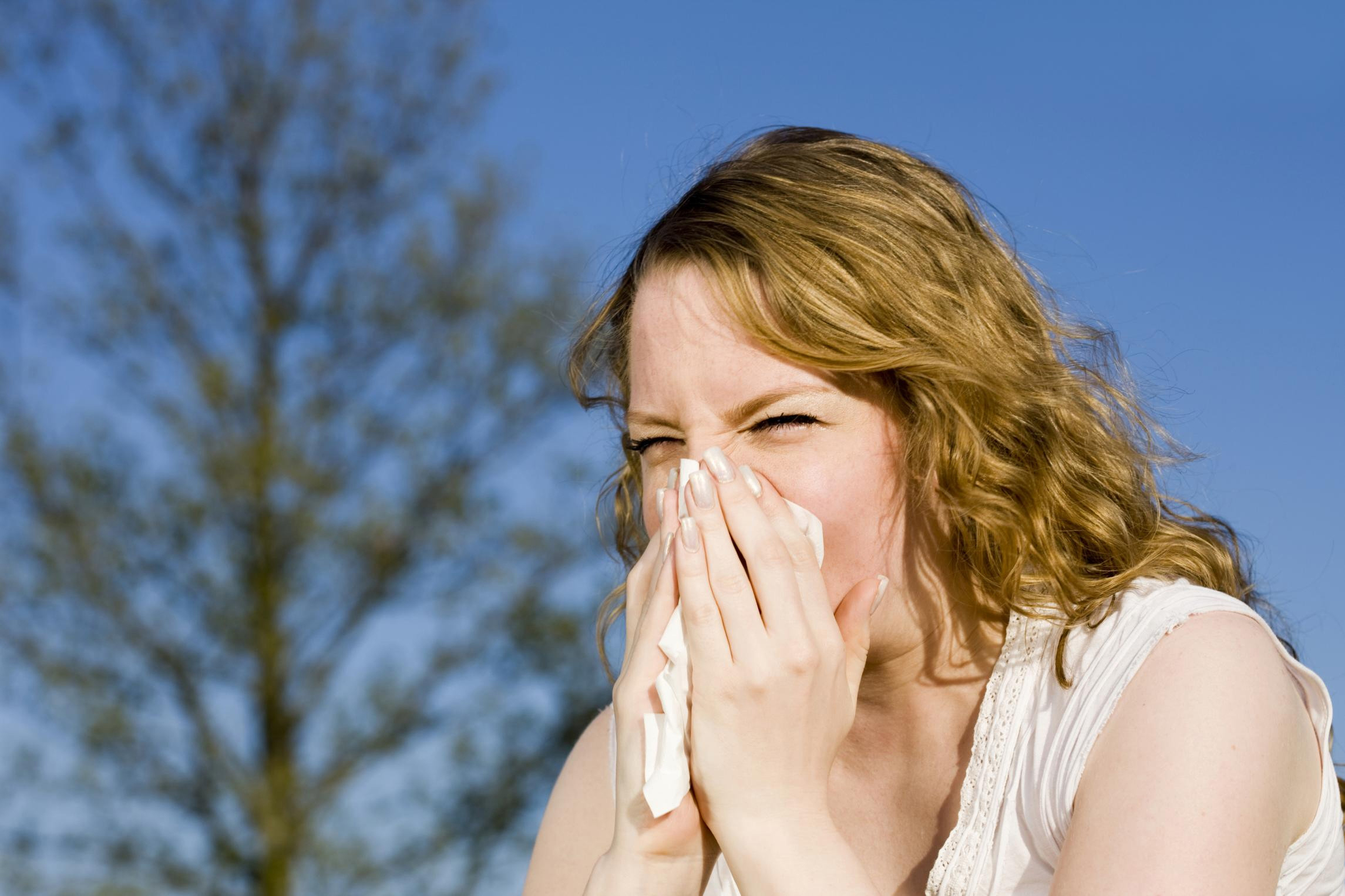8 surprising tips to beat your hay fever
Because no one wants to suffer through summer with a runny nose.
It finally feels like summer is here, bringing with it all the best things warm weather has to offer, like BBQs and sipping wine with friends outdoors in the sunshine.
However, there’s one undeniable drawback – the dreaded hay fever that comes with summertime.
There’s nothing worse than putting on a cute dress and heading out to a picnic, only to be unable to enjoy a thing, thanks to your streaming eyes and runny nose.
Luckily, there are some surprising natural hacks that can help alleviate hay fever symptoms. Why not give them a go?
1. Give meat a miss
Whilst it might be barbecue season, you might want to opt for fish or veg instead of a burger. Holland & Barrett nutritionist Emily Rollason says: “Meat, and in particular fatty red meat, but also including chicken, pork and some fish, may provide high levels of inflammatory fatty acid arachidonic acid and could be a mediator in the development of allergies, such as hay fever.”
She advises: “Try to limit these types of meats and include something with anti-inflammatory Omega 3 fatty acids, such as oily fish like salmon, mackerel and herring.”
2. Add quinoa to your salads
Whilst you might spend your time popping antihistamine pills, you can actually get it naturally in your diet.
Rollason says: “Some plant-based foods such as quinoa, onions, tomatoes, apples and grapes are rich in a phytochemical called quercetin, which has natural antihistamine properties.”
Quinoa is so much more than a fad. It’s a delicious grain that can be easily added to salads, or used as a rice or pasta substitute.
3. Munch on some pineapple
Just like quinoa, tropical fruit like pineapple can help with your puffy eyes and itchy nose.
Rollason says: “Pineapples contain an enzyme called bromelain that has natural anti-inflammatory properties and has been traditionally used to aid with inflammation in the sinuses, which can be linked to hay fever.”
If you’re not keen on pineapple you can try bromelain supplements instead.
4. Be careful where you dry your clothes
Anyone who suffers from hay fever is well aware that you need to regularly clean yourself and your clothes to avoid bringing in pesky bits of pollen. However, you might be falling short in where you dry your clothes.
Nutritionist Sarah Flower from Power Health says: “I would recommend being cautious of where you dry your clothes. Though you might feel compelled to embrace the warmer temperatures and hang your clothes outside to dry, rather than throwing them in the tumble dryer, you are contaminating them with pollen, which will cause your allergy symptoms to worsen.”
5. Go dry
Sorry if this is not good news – but even though the weather might practically demand daytime drinking, it unfortunately not going to be a winner for your hay fever.
Flower says: “Alcohol is loaded with histamine, which is known to cause an inflammatory response and worsen the symptoms of seasonal allergies. Even just drinking more than one glass a day can cause problems for more perennial hay fever sufferers, with wine being a particular risk, so try not to get too carried away.”
6. Head to the beach
Don’t worry, not all these tips will spoil your summer fun. Flower recommends a trip to the beach to alleviate symptoms.
Environmental pollutants of cities can actually worsen allergies which your immune system already suffers from, she says, whereas pollen levels are lower by the sea.
Sounds like the perfect excuse to buy a bucket and spade and organise that day trip.
7. Eat some local honey
You’ll feel extra smug with this one as you’ll be supporting local businesses, with the added bonus of helping your hay fever.
“Local honey has been found to give many hay fever sufferers relief,” Flower explains, “as it can help to build up your resistance to local pollen and fight off the unwanted symptoms.”
8. Put some coconut oil in your nostrils
Okay, this one might sound a little strange, but it is a natural way to battle the dreaded hay fever. Spreading a thin layer of coconut oil inside your nostrils is said to make a barrier and stop pollen from entering.
And look on the bright side – you’ll smell all tropical and summery into the bargain.
The Press Association
Latest posts by The Press Association (see all)
- Maple Cinnamon Granola - January 8, 2025
- 8 things your feet can tell you about your health - January 8, 2025
- 9 ways to look after your emotional health better in 2025 - January 7, 2025
- EastEnders fans to vote on storyline for the first time in 40th anniversary week - January 7, 2025
- Aldi beats rival Lidl as cheapest supermarket of 2024 - January 6, 2025





















